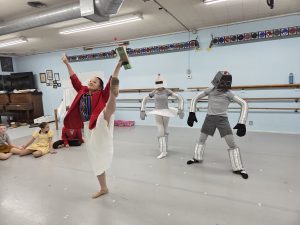There was plenty of scoffing up north a decade ago when it was first suggested that the San Francisco 49ers might build their new stadium in Santa Clara. And there’s been plenty more of it since the NFL team amazed the San Francisco establishment by doing just that.
But the bland “suburb without much good food nearby,” as a Huffington Post writer described Santa Clara, was clear-sighted enough to calculate the likely costs of a Super Bowl before agreeing to host the mega-event. Santa Clara set reimbursement of $3.6 million in public safety costs as a condition for hosting the game.
San Francisco didn’t estimate what the tab was going to be until December – $4.9 million according to a Jan. 15 report by San Francisco’s Budget and Legislative Analyst. In 2013, when Santa Clara was sharpening its budgeting pencil, the Host Committee and San Francisco Mayor Ed Lee were congratulating themselves for an “incredible bid” and anticipating “the best, most innovative and most philanthropic Super Bowl.” Lee expected that “local tax revenues generated by Super Bowl 50” would “offset the City’s General Fund expenditures for these events,” according to the Analyst’s report.
Only $308,000 of the estimated cost was anticipated in San Francisco’s budget, by the Fire Department. Other departments “have been requested by the Mayor’s Office to identify $4,375,765 of surplus in their General Fund allocations and/or redirect staff time and other resources from planned projects to support this extraordinary special event,” the report says. And this while the City by the Bay faces a $100 million budget deficit in the coming fiscal year, according to its 2015 two-year budget.
San Francisco taxpayers are even picking up a $12,000 security tab for a City Hall dinner for NFL owners – average net worth: $3 billion, per ESPN.
Now three Supervisors (sfbos.org) – John Avalos, Jane Kim and Aaron Peskin – are suddenly getting vocal about San Francisco absorbing Super Bowl public safety costs, and demanding the Host Committee reimburse the City.
It appears that the Supervisors’ Road-to-Damascus conversion to fiscal responsibility was driven by their recent discovery of Santa Clara’s reimbursement agreement. The contracts have been on SantaClaraCa.gov for three years.
Super Bowl Bid Sweetened Candlestick Lease Termination Deal
Both Avalos and Kim were in office in 2012 when the Board of Supervisors twice voted, unanimously, to support a Super Bowl bid. Kim is a protegee of San Francisco political power broker Willie Brown – some call him the shadow Mayor. Brown relentlessly drove a narrowly passed 1997 referendum offering a $100 million public subsidy for a new 49ers stadium in San Francisco.
Kim represents District 6, which includes Hunters Point Naval Shipyard – the Superfund site that San Francisco was promoting for a new 49ers stadium, even as the team was signaling its intention to move to Santa Clara.
Supervisor Mark Farrell introduced the Super Bowl bid in 2012 as part of a Candlestick lease termination agreement (tinyurl.com/hfs5uly). Farrell, a former executive for a hospitality startup, chairs the Board of Supervisors’ Budget and Finance Committee. Avalos also is on the committee, and, like Farrell, has been on it since 2012.
On June 5, 2012, the Supervisors approved an agreement with the 49ers to “jointly lead a Super Bowl bid committee to work with the NFL to bring a Super Bowl to the Bay Area as early as 2016” if the 49ers agreed to pay $5.2 million to terminate the Candlestick lease in 2014, and as much as another $5 million to terminate it in 2015. The lease’s expiration date was 2016.
“San Francisco is going to partner with the 49ers to bring a Super Bowl win here,” said Farrell at the time. “And [it is] the principal reason why we should be very excited about … this agreement.”
At its Oct. 30, 2012 meeting, the Board passed another unanimous resolution “declaring the Board of Supervisor’s support to host the Super Bowl in 2016 and 2017,” and endorsing the Host Committee appointments – which included Willie Brown.
The Super Bowl bid recommendation came from Farrell’s Budget Committee, according to the Oct. 30 meeting agenda. That committee appears to have had responsibility for Super Bowl-related planning. The Super Bowl doesn’t appear on agendas for regular Board of Supervisors meetings until December, except for resolutions about promoting human trafficking awareness during Super Bowl events.
Although hosting a Super Bowl is a major public project for a host city, a private 501(c)(6)* non-profit, the Host Committee, prepares and presents the bid to the NFL; securing the required commitments and raising money to produce the event. There’s a bid template spelling out NFL requirements in detail. Although the NFL doesn’t make it public, Super Bowl 49 host city Glendale, Arizona and the Minneapolis Star-Tribune posted copies online. The final bids aren’t public documents.
The San Francisco Super Bowl 50 Host Committee also had such a bid specification, and Santa Clara City Council Members received copies. It’s unclear whether San Francisco’s Supervisors saw the requirements; although San Francisco’s Fire, Police, and Emergency Management Departments all signed letters agreeing not to ask for NFL reimbursement for extra costs related to the Super Bowl (a standard requirement).
Neither the NFL nor the Super Bowl 50 Host Committee responded to the Weekly’s requests for information about bid processes and documents.
“City staff interviewed by the Budget and Legislative Analyst believe that the Bid outlined City services to be provided to support Super Bowl 50 events,” says the Analyst’s report. “However, none of these staff had reviewed the Bid document or were able to furnish the Budget and Legislative Analyst with such a Bid document. Because the Bid was not a contract for services, it did not require approval by the Board of Supervisors.
“Several City department staff told the Budget and Legislative Analyst that their budgets routinely include funds without specific event identification for department services to special events, such as Chinese New Year, Gay Pride, Fleet Week,” the report continues. But Super Bowl 50 isn’t the first time San Francisco failed to anticipate the costs of a hosting a big sports event. The city lost $11.5 million on the 2012 Americas Cup.
The Analyst’s report is openly critical of San Francisco’s budget process.
“The fact that City departments have now been able to identify General Fund surpluses in their FY 2015-16 budgets to pay for Super Bowl 50 events documents that the City departments’ budgets have surpluses that were not accurately reported to the Board of Supervisors” and “represents a nondisclosure to the Board of Supervisors of significant expenditures to be incurred on Super Bowl 50 events and … a disservice to the Board.”
The Analyst’s recommendation that San Francisco seek reimbursement is based on the fact there there’s no written agreement, other than the original bid, between San Francisco and the Host Committee or NFL about responsibilities for Super Bowl 50 events in San Francisco.
The Super Bowl 50 Host Committee shares little about its finances. San Francisco Chronicle reporter Joe Garofoli estimates the Committee has received $50 million in donations (tinyurl.com/jhojp9k). The Committee’s 2014 tax return shows $17.7 million in donation income, a $4.4 million donation to its Legacy Foundation charity, and $3 million in other expenses – including CEO Keith Bruce’s $404,183 salary. Tax returns for 2015 won’t be public until late this year.
*The IRS’ 501(c)(6) category covers business associations that promote a common business interest but whose earnings don’t benefit individual members. These groups – unlike PACs – don’t have to disclose individual donors, just the total amount of donations.











0 comments